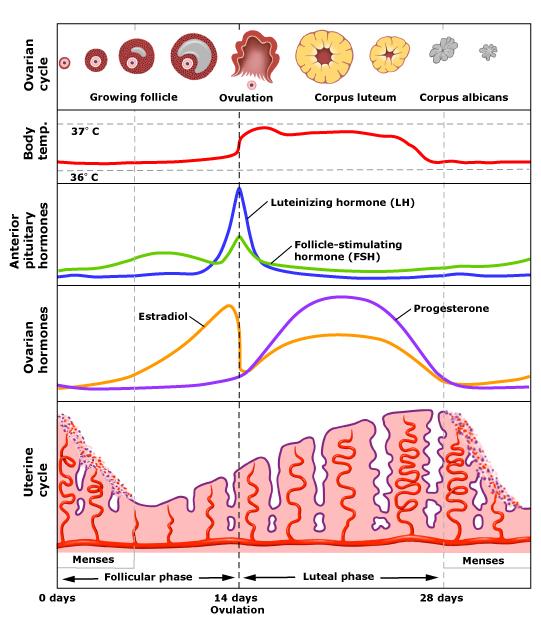Most of us women know the feeling well. That obnoxious pain in your abdominal region that comes once a month and last three to five days. It can vary from a slight twinge to a pain that you just cannot stand for three days straight. Sure, pain pills can help, but is popping pills every 8 hours for three days really the only thing you can do? Surely there must be something your liver would prefer. Trust me, there is and we’re going to explore some of those other options today.
First, what causes Menstrual Cramps?
We’ve previously discussed parts of the menstrual cycle, so I won’t go back over those details, but during ovulation, a release of hormone-like substances called prostaglandins send a message through the body and force the muscles of the uterus to contract. During this contraction, the uterus sheds its lining. This contraction and shedding is what causes us to feel pain our midsection, a.k.a. menstrual cramps. Everyone feels a different degree of pain from this contraction; in fact some people never even notice it while others need to find ways to control the pain.
What can I do to naturally reduce menstrual cramps?
Some scientific research has shown that these substances help relieve menstrual cramps, while some of them have come from trial and error of those willing to try different remedies. There are many different natural remedies that you can try at home for yourself, but today I will discuss with you what I use for my own menstrual relief.
- Cinnamon and Ginger– As we have talked about before, cinnamon is a natural remedy for many different ailments. It has natural anti-inflammatory properties as well as anti-bacterial and anti-fungal properties. Ginger has similar properties, so both are a great natural, at home source of menstrual relief. My preference is to either have cinnamon tea or to put a half a cinnamon stick in my water bottle for a day or two before changing it out.
- Peppermint– Peppermint is a natural muscle relaxer (not to mention and appetite suppressant as well), so it is perfect for helping relieve menstrual pains. Peppermint tea or peppermint oil in your water is a great way to add this into your diet. Also, think about adding a few peppermint candies into your purse for when you feel a cramp coming on, you can pop one or two in your mouth as needed.
- Omega three fatty acids– again, another thing we’ve talked about in a previous blog post. Omega three fatty acids, found in fish and vegetable oils are great relief for period cramps. Eat more fish during your period, or take a fish oil supplement a few days before and during your period.
- Reduce Caffeine intake– caffeine can actually make muscle cramps worse and this speaks true for those uterus

Candy Cane Lane tea is sold seasonally for the Christmas Holiday and is great for menstrual cramps since it contains both cinnamon and peppermint!
contractions as well. From my own experience, during my period if I have coffee during the day, my periods are much more unbearable than on days where I forgo coffee. So as much as it stinks to not have coffee during the day, it really does make a difference to skip the coffee and caffeine. Instead, I drink tea, and lots of it, during my menstrual cycle. My personal favorites are a blend of cinnamon, vanilla, and peppermint (Candy Cane Lane by Celestial Seasonings) and Peach Ginger which one of my local coffee shops sells.
- Heat– A great thing to do when you’re having menstrual cramps and don’t have anywhere you need to be is to add heat to your mid section. My favorite thing to do is to lie in bed with a heating pad while I watch some Netflix. Another great thing to do is to take a good detox bath with warm water and some Epson Salts or other bath salt. The heat is great for relieving muscle cramps and the detox from the salts helps as well and makes you feel better overall.
Those are just my methods for relieving menstrual cramps. There are plenty of other remedies out there, and I urge you to look them up if these ones don’t work for you.
However, if your cramps are so painful that you can’t find relief in any way, I urge you to go to your doctor and discuss options there. There could be underlying problems or they may have better solutions for you. Sometimes a low dose birth control is needed to control menstrual cramps. Your doctor is the best person to discuss if this is needed with, so again, I urge you to seek medical advice if you feel it is needed.
Have you used any of these methods to relieve your menstrual cramps? Have some of your own? Share below, I’d love to see your thoughts.
Until next time,
Kat


